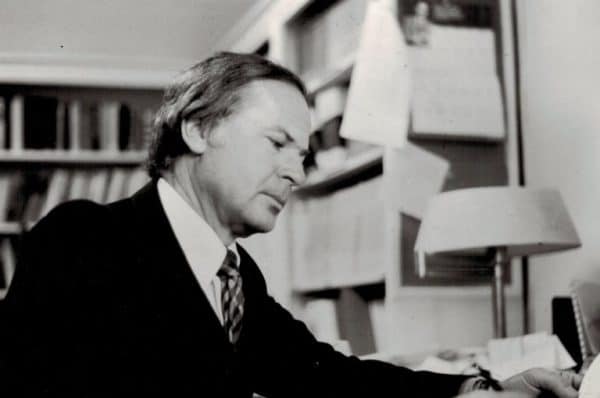Dr. Ronald Fieve, 87, Dies; Pioneered Lithium to Treat Mood Swings
Sam Roberts, New York Times, January 12, 2018
Dr. Ronald R. Fieve, who pioneered the prescription of lithium to treat mania and other mood disorders — while avowing that some gifted individuals, like Abraham Lincoln, Theodore Roosevelt and Winston Churchill, might have benefited from being bipolar — died on Jan. 2 at his home in Palm Beach, Fla. He was 87.
The cause was congestive heart failure, his daughter Vanessa Fieve Willett said.
Alerted by his adviser, Dr. Lawrence Kolb, to groundbreaking research in Australia, Dr. Fieve (pronounced FEE-vee) began experimenting with lithium to mitigate depression in the 1950s, when he was a resident at the New York State Psychiatric Institute.
He and a colleague, Dr. Ralph N. Wharton, went on to identify lithium as the first naturally occurring medication to prevent and control a specific psychiatric disorder and reduce the risk of relapses.
In 1966 Dr. Fieve established the first lithium clinic in North America.
“During the 1970s, it was apparent that psychiatry was going through a difficult transition and suffering from an identity crisis,” Dr. Fieve wrote in “Bipolar Breakdown” (2009), one of several of his popular books.
“While many psychiatrists, psychologists and psychoanalysts held on to Freud’s psychoanalytic explanation of the major mood disorders,” he continued, “there was compelling scientific evidence to the contrary. The medical model, with an emphasis on heredity and brain chemistry, began to replace Freud, and the age of psychopharmacology was born.”
In 1970, when he was chief of research in internal medicine at the psychiatric institute and the psychiatric department of what was then called the Columbia Presbyterian Medical Center (it is now NewYork-Presbyterian Hospital/Columbia University Medical Center), Dr. Fieve and several other researchers persuaded the Food and Drug Administration to approve the prescription of lithium salts for acute mania.
{snip}
In contrast to antidepressant drugs or electroshock treatments, he said, regular doses of lithium carbonate appeared to stabilize mood swings without cramping creativity, memory or personality.
He promoted the use of lithium in the 1970s on radio and television talk shows, where he often appeared with the theatrical and film director Joshua Logan, a former patient.
{snip}
Lithium, a powdery chemical element that is extracted from igneous rock and mineral water, is also used in batteries, lubricating grease and rocket fuel.
Before it was approved to treat depression, lithium was found in the late 1940s to be potentially unsafe as a salt substitute. But Dr. Fieve pointed out that lithium had been found in natural mineral waters prescribed by Greek and Roman physicians 1,500 years earlier to treat what were then called manic insanity and melancholia.
Since then, researchers have found that people with genetic markers for colorblindness and a specific blood type were susceptible to manic depression.
{snip}
As a clinical psychopharmacologist, Dr. Fieve conducted research and treated private patients in New York. He was a distinguished professor emeritus in psychiatry for NewYork-Presbyterian Hospital and founder of the Foundation for Mood Disorders in Manhattan.
In 1980, the Diagnostic and Statistical Manual of Mental Disorders, published by the American Psychiatric Association, redefined manic-depressive psychosis, in which patients swing alternately between major depression and mania, as bipolar affective disorder, in part as a result of Dr. Fieve’s research.
{snip}

Ronald R. Fieve, benefactor. of humanity















